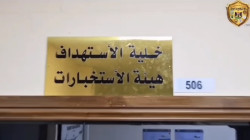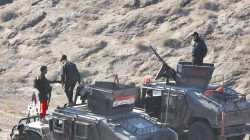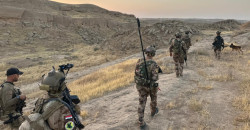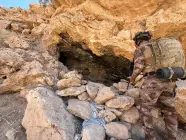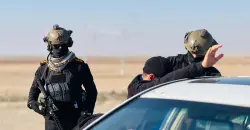ISIS Lone Wolf tactics exploit fragile security in Iraq’s liberated governorates
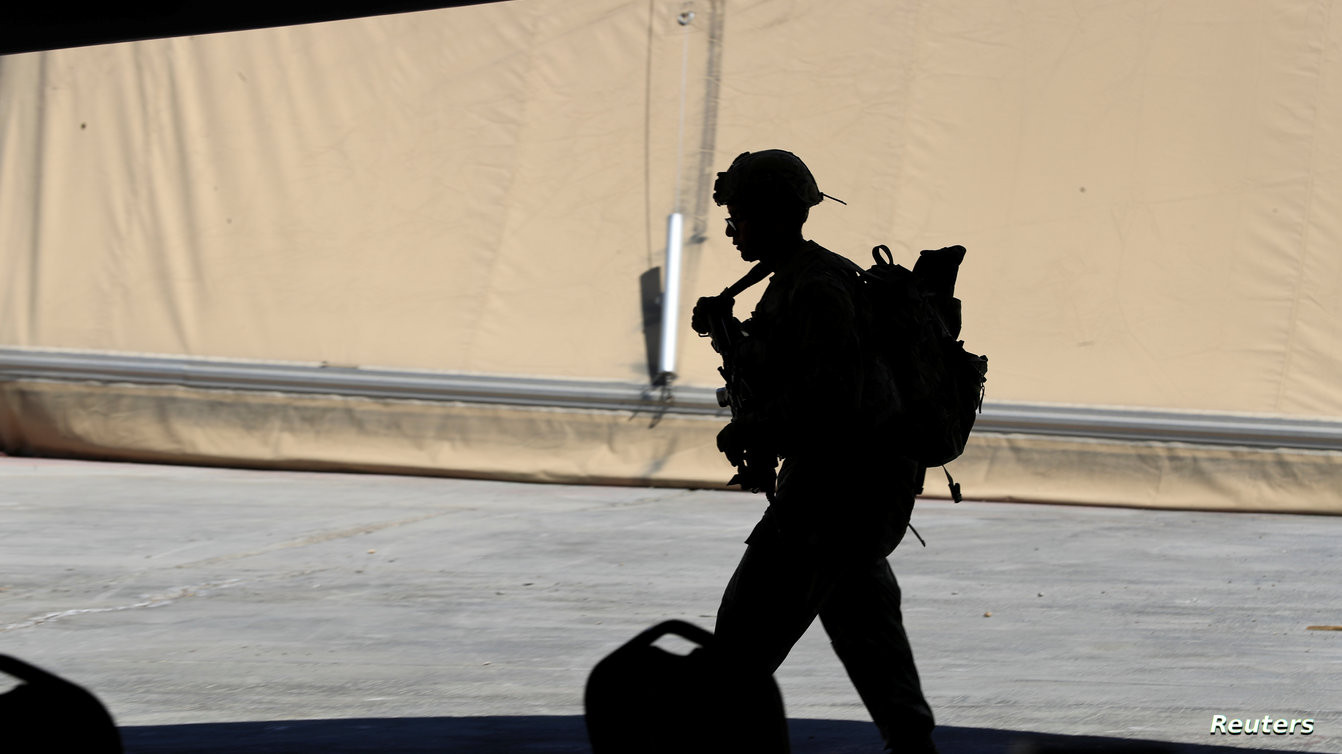
Shafaq News/ The security situation in some of Iraq’s liberated governorates, specifically Diyala, Saladin, Kirkuk, and Nineveh, remains fragile. This instability has provided an opening for remnants of ISIS to attempt to revive their violent activities, using tactics such as "lone wolf" attacks. Despite military officials in Iraq declaring that ISIS is no longer capable of mounting large-scale operations, isolated elements of the group are still exploiting security gaps, hoping to regain a foothold.
Senior Military Confidence vs. Lingering Threat
Iraqi military officials maintain that ISIS is no longer a major threat. They argue that the group, which once controlled vast territories in Iraq, has been reduced to isolated remnants hiding in remote areas.
According to senior military sources, ISIS lacks the capability to revive itself. "What remains of ISIS is just a few individuals in hiding," officials state, with the country's intelligence services actively targeting these militants through specialized operations.
Two Terrorist Plots Foiled in Kirkuk
The role of intelligence and swift action by security forces has proven in preventing attacks. Arshad al-Salihi, head of the Human Rights Committee in Iraq’s Parliament and a representative from Kirkuk, told Shafaq News that the country's security agencies successfully foiled a terrorist plot on the night of the incident in Kirkuk. "The security and intelligence forces, with the help of the Falcons Cell, managed to thwart a terrorist attack yesterday in the Banja Ali neighborhood, killing the terrorists involved," al-Salihi said.
He stressed the importance of continued vigilance, explaining that over the past two weeks, security forces have managed to prevent two separate ISIS terrorist plots in Kirkuk. "Quick response and sharp intelligence have been key in stopping these attacks before they could be carried out," he added.
Recent Arrests and Security Gaps
A security source in Kirkuk also revealed that ten days ago, the National Security Service, in coordination with the Counter-Terrorism Service in Al-Sulaymaniyah, uncovered another ISIS plot. "Intelligence confirmed that two individuals were hiding in the Si Kanyan neighborhood," the source said. One of the suspects was arrested, while the other committed suicide when cornered by security forces. A third member of the cell was later apprehended by Al-Sulaymaniyah's counter-terrorism units, further disrupting the ISIS network.
ISIS Exploiting Security Gaps in Northern Iraq
Despite claims by Iraqi military officials that ISIS is largely neutralized, security experts believe the group continues to exploit specific weak points in the country’s defense apparatus.
Security analyst and Iraqi army officer Mahmoud Abdul Jabbar told Shafaq News that “ISIS has been active in areas where there are security gaps, particularly between Kirkuk, Saladin, and Diyala, as well as the border area between Kirkuk and Erbil, specifically in Dibis district and Altun Kupri.”
Abdul Jabbar pointed to a recent security operation in Kirkuk, about ten days ago, which took place in the predominantly Christian Si Kanyan neighborhood. The operation resulted in injuries to four members of the National Security Service, underscoring the ongoing risks to security personnel.
The operation was part of a broader effort by Iraq’s Falcons Cell to neutralize two militants who were carrying explosive belts. The militants were riding a motorcycle and transporting a significant amount of food, possibly for delivery to affiliated groups or as a means of disguise. "The militants were intercepted before they could carry out their attack, thanks to the vigilance of security forces," Abdul Jabbar said.
Iraq’s Interior Ministry Confirms Engagement in Kirkuk
On the night of the incident, Iraq’s Ministry of Interior, through its spokesman Brigadier General Miqdad Miri, confirmed that two terrorists were pursued and cornered in Kirkuk’s Banija Ali area. Miri noted that “the terrorists were armed with explosive belts, which detonated when security forces opened fire, killing both militants on the spot.”
ISIS "Lone Wolf" Tactics Pose Persistent Threat
Sheikh Salem al-Bayati, a tribal leader from Saladin, described how ISIS has adopted new strategies, particularly the use of "lone wolf" attacks, as it seeks to avoid large-scale confrontations with Iraqi security forces. "ISIS is using areas like Zarqa, on the outskirts of Tuz Khurmatu, Hawi al-Buheira near Amerli, and other remote locations in Diyala and Saladin," al-Bayati said.
"These militants are operating on the fringes, and they are using tactics like improvised explosive devices (IEDs) and small, isolated attacks, which have long been hallmarks of ISIS strategy."
Al-Bayati called for urgent operations to root out ISIS cells and emphasized the need for close coordination between Iraq's national security forces and the military units from the Kurdistan Region to neutralize the threat. He warned that “ISIS’s use of "lone wolf" tactics remains a serious concern, particularly as the group continues to exploit Iraq’s security gaps, putting civilians and security personnel at risk.”
